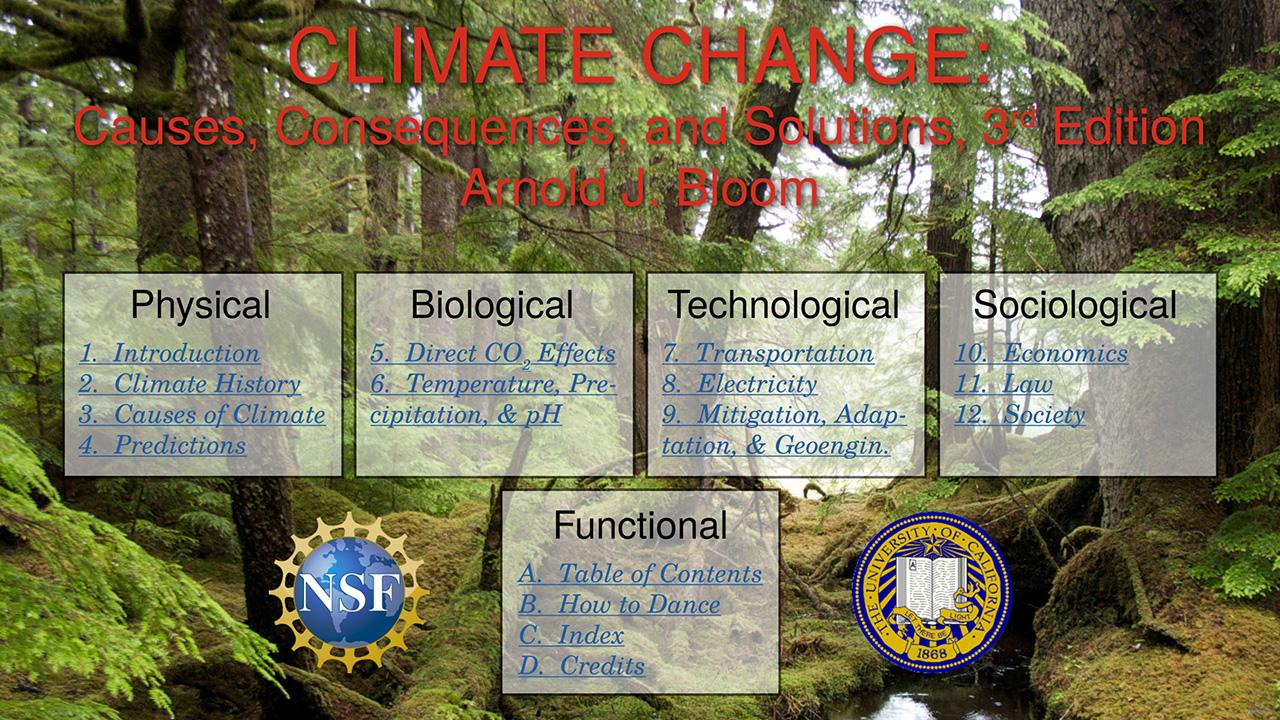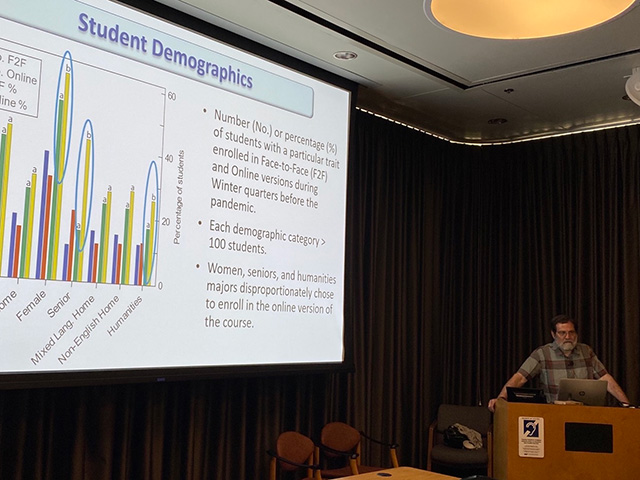
Slightly lower grades for online ease? Sure.
Some students willing to pay the price, study suggests
Some undergraduate students may be willing to accept slightly lower grades in exchange for easier scheduling, researchers concluded during a study of undergraduate performance in one online course. Results of their study were recently published in the journal Communications Earth & Environment Nature.
The research comes two years after educational institutions at all levels, around the world, began wrestling with how to provide the best possible education amid the dangers of the COVID-19 pandemic. “The issue has become whether the convenience and safety of online instruction outweighs the possibility of inferior learning outcomes for today’s undergraduates,” wrote Arnold J. Bloom, a distinguished professor in the Department of Plant Sciences. He wrote the paper together with Sattik Ghosh and Stephanie Pulford, of the UC Davis Center for Educational Effectiveness, with Bloom as the senior author.

Distance learning has been used since at least the 1850s, but has been long criticized for being inferior to in-person studies. Seizing the opportunity presented by the pandemic, Bloom and team analyzed the grades of 1,790 undergraduates taking an introductory course on climate change.
“Doom and Gloom with Bloom in the Zoom Room” is the affectionate name Bloom dubbed his course. He had been teaching it both online and face-to-face since 2013. When looking at all students’ grades before and during the pandemic, the Bloom team found no significant difference between the two time periods. However, the team discovered that students taking the online version earned grades 2 percent lower, on a scale of 0 to 100, than their peers taking face-to-face courses.
Choice played a role: Students self-identifying as women, humanities majors or in their senior year were more likely to enroll in the online version of the course when they had the opportunity. They and some other groups of students – including students from minorities underrepresented in the sciences – performed less-well than students taking the course in-person. That relatively small trade-off may be attractive to people with family responsibilities, employment constraints and scheduling difficulties, the team speculated.
Significantly, students also performed less-well when they skipped the online discussion sections, the team found, perhaps explaining lower grades on the writing assignments and exams.
“The convenience of the online course – it required only one synchronous, online meeting per week versus three synchronous, on campus meetings per week – might be worth this small penalty,” the researchers concluded.
Course part of a national climate education effort
Bloom originally created the multi-disciplinary, introductory course in response to a call by the National Science Foundation to develop web-based resources for teaching undergrads about climate change. Learn more about "Creating a Learning Community for Solutions to Climate Change.”
All elements of the course are available for free at https://www.climatechangecourse.org, including a free multi-media textbook at https://indd.adobe.com/view/7eafc24d-9151-4493-85d2-cb3f2e5a2a51 that is updated regularly.
Findings presented in video
Watch a video presentation of Bloom’s findings in his Wednesday Seminar recorded June 1, 2022. The results are presented about half-way through the video.
Media Resources
Trina Kleist, (530) 754-6148 or (530) 601-6846.
